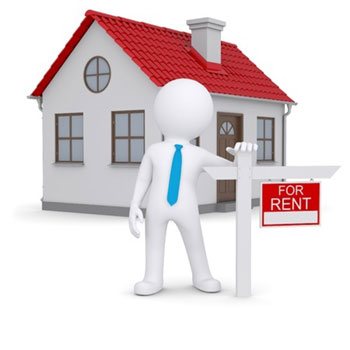Legal checklist for first-time Landlords
 Becoming a landlord can be a lucrative business opportunity, but jumping in head first without thinking out the legal implications in advance can lead to wasted dollars and even cause your new venture to fail. The best way to set yourself up for success is to get your legal protections in place before you even post the rental unit as available.
Becoming a landlord can be a lucrative business opportunity, but jumping in head first without thinking out the legal implications in advance can lead to wasted dollars and even cause your new venture to fail. The best way to set yourself up for success is to get your legal protections in place before you even post the rental unit as available.
Use this checklist that we’ve created to ensure that you and your property are legally protected.
The new Landlord checklist
- Verify NYC registration requirements. The first thing landlords should do is find out if their building needs to be registered with NYC, whether any of the tenants are Rent Controlled or Rent Stabilized, and if there is a valid Certificate of Occupancy. If you are at all uncertain about your registration requirements, contact Brasch Legal for an evaluation of your situation.
- Put it in writing. It should go without saying that every agreement needs to be written down. Create a rental agreement and use it every time you rent out your unit. If you ever have problems with the tenant, later on, the rental or lease agreement will be your best source of protection. These agreements clearly define the rights and responsibilities of each party and the signatures at the bottom indicate that both parties understand and have agreed to the terms, which is important if a problem ever arises in the future.
- Require a security deposit. The security deposit isn’t just extra cash you get to collect upfront. Requiring a security deposit serves three important functions. First, it communicates to the tenant that you care about the condition of the property and expects them to do the same. Second, it motivates the tenant to keep the unit in good shape or else they risk losing their deposit. Third, it provides the landlord with funds to pay for any damages caused by the tenant. Along with the security deposit, have the tenant fill out a rental inspection form, which provides you both with written evidence as to the condition of the unit prior to move-in. Make sure you both sign off on the inspection. Refer to this when the tenant moves out to ascertain if damages have occurred.
- Screen your tenants. The biggest risk with becoming a landlord comes via the tenants themselves. You don’t know if they will respect your property or even be able to make the payments. Decrease these risks by thoroughly vetting your applicants. The rental application is your chance to collect the data you will need to see if the tenant is reliable. At a minimum, you will want to check their credit history and employment status to make sure they can afford to pay their rent. It’s also a good idea to conduct a background check to see if they have a criminal history or a history of evictions. Do not be afraid to ask for references from previous landlords so you can learn more about the reliability of the candidate. Although it takes time and is a lot of work up front, a thorough screening is much easier to do than having to evict tenants later on.
- Understand lease terms. Make sure you understand the lease document and the terms within it before you and the tenant sign it. Once it is signed you will be legally obligated to uphold your responsibilities. If you don’t, the tenant could take you to court for failure to comply with the terms and you could find yourself in trouble with the local housing authority.
- Understand landlord and tenant rights. Both tenants and landlords have rights. You need to understand these rights to ensure you are doing your best to protect yourself and the tenant without infringing on their privacy or putting their safety at risk. You should also familiarize yourself with the local eviction procedures in case it ever comes to that.
- Create a separate bank account. Keep your rental business separate from your personal life with a dedicated bank account. Use this account to pay rental-related bills and taxes and manage the investment finances.
Set up legal protections with help from a Landlord attorney at Brasch Legal
Take appropriate steps to prepare yourself for becoming a landlord with help from the landlord attorneys at Brasch Legal. We can help draft lease agreements and rental application forms, explain the rights and responsibilities of landlords in NYC and make sure you are legally protected on all sides. And if things go south and you need help evicting a tenant, we can help with that too.
We work with commercial and residential landlords to help them navigate New York’s complicated landlord-tenant laws. Visit us online at www.braschlegal.com or call us at 212-267-2500 for answers to your questions.





